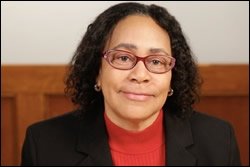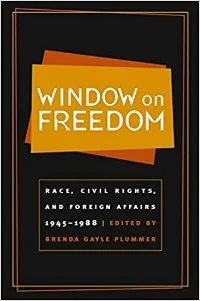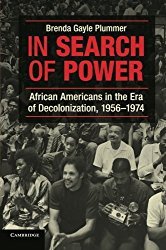MEET THE ADVISOR: DR. BRENDA GAYLE PLUMMER, AUTHOR OF RISING WIND
Dr. Brenda Gayle Plummer
As we began putting together Black Diplomacy’s advisory team, one name kept popping up - Dr. Brenda Gayle Plummer. Her book, Rising Wind, is considered by many to be the definitive text on the history of African American engagement in international affairs and serves as a key text in developing our film. In my discussions with other scholars, it was almost taken as a given that if we were pursuing the subject matter of race, diplomacy, and international affairs then, of course, we must have spoken with Dr. Plummer. Even today, over a year since the beginning of the project, if I am interviewing or speaking with someone who has done research in the area of African Americans and foreign policy, diplomacy and diversity, that person will undoubtedly say, “Have you spoken with Brenda Gayle Plummer?” I’m very pleased, and proud, that I’m able to respond, “Of course. She’s on our advisory team.”
1. What inspired you to research and write Rising Wind?
At the time I began the book, few people linked African Americans with foreign affairs. Black Americans were assumed to inhabit the domestic realm only. While much had already been written about Pan-Africanism and Back-to-Africa movements, and nationalism was a critical element of the African American world view, not all black engagement with international issues related directly to Africa or to race. While exploring this, I also discovered that there was a grass roots component to it. This information was not part of the conventional stories told about U.S. foreign relations and I wanted to use it to reinterpret the meaning of the African American experience in both the U.S. and global contexts.
2. In Rising Wind you detail the development of African American engagement in international issues during the early post WWII era. Can you briefly describe some of the factors that increased Black engagement in U.S. foreign policy?
In order to break Americans out of an isolationist mindset, the U.S. government made a considerable effort to create a favorable impression of the United Nations within the American public. Many African Americans embraced the idealism inherent in the messaging they received, and moreover, regarded world opinion, especially in the early years of Cold War rivalry, as an instrument that could be deployed to pressure the federal government for changes on the racial front. Another major factor was the end of formal colonialism and the emergence of African nations that not only held a large degree of symbolic value for African Americans, but also might be marshaled as allies in the fight against racism in this country.
3. What role did race play in U.S. foreign policy during the early Cold War period?
The State Department and the White House were not prepared during this time to admit people of color into highest levels of diplomatic service. Their inadequacies were a reflection of the society as a whole, which remained committed to segregation until social movement pressure forced change.
4. You once described African American diplomats during the early Cold War period as having to walk a "tightrope." Can you elaborate on what that means and the challenges these men and women faced?
During the early Cold War period, which for the sake of this discussion I'll denominate as 1946-1953, the majority of African Americans employed by the State Department held clerical or consular positions. They nevertheless were expected to represent the United States abroad even if they were fully aware of the limitations of U.S. democracy. The tightrope they walked is the balance they had to achieve between putting the best face on Jim Crow and discrimination while remaining enthusiastic about the yet unrealized American vision of freedom and justice.
5. Why do you think the stories we are highlighting in the film are important stories to tell today?
The public does not generally think of African Americans when it considers international matters. Yet African Americans have been central actors in diplomacy since the early nineteenth century, on behalf of the nation at large as well as on behalf of themselves. The struggles they undertook to be perceived as worthy representatives of the nation mirrored the fight against slavery and racism that preoccupied the larger society in the past and continues to resonate today. The figures under discussion are part of this long and ongoing historical process.
6. What are you currently working on?
Among current projects is a study of NASA's impact on African Americans and research on the late Congressman Charles Diggs.
7. What is your favorite documentary film?
I don't really have a favorite. Among those that I have liked the most are Spike Lee's When the Levees Broke, his 4 Little Girls; and Ava Duvernay's 13th and Selma.
Dr. Brenda Gayle Plummer is a professor in the departments of History and Afro-American Studies at the University of Wisconsin-Madison.
You can find her work here.
Black Diplomacy is grateful to the National Endowment for the Humanities and the Virginia Foundation for the Humanities for supporting scripting and project development.






